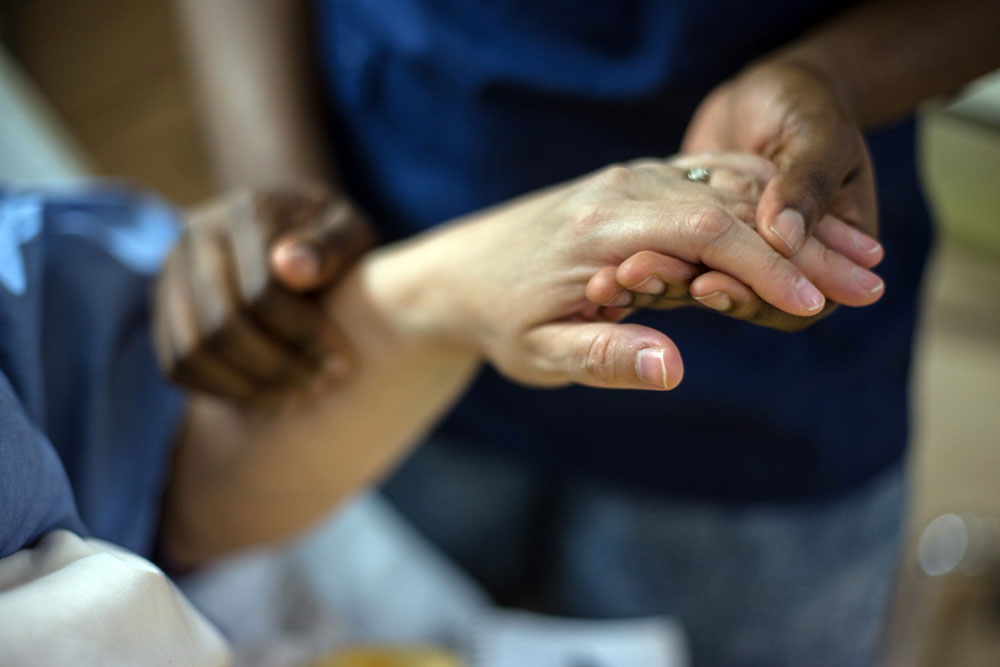
Researcher Profile: Dr. Tom Hack
Instant Replay: Medical Visits at the Push of a Button
You’ve been diagnosed with cancer. Now it’s time to talk to your doctor about what happens next.
When you first learn you’re facing cancer, there’s a lot of information to take in and big decisions to be made. But when someone asks you later what your doctor said about your diagnosis, you suddenly find you can’t remember a thing.
Dr. Tom Hack says that’s pretty normal.
“When cancer patients have their initial treatment consultations with their oncologists, they’re understandably anxious,” says Hack, a professor and researcher at the College of Nursing and former chair in Psychosocial and Supportive Oncology Research at the Canadian Breast Cancer Research Foundation.
“That anxiety makes it very difficult for patients to process and understand complex information as their doctor tells it to them, and to remember that information after the consultation.”
While it’s perfectly natural to be overwhelmed by medical discussions around a serious illness, forgetting or misunderstanding the details of your condition and your treatment plan can cause even more distress.
Hack believes that if patients were offered audio recordings of their initial consultations, it would be like “bringing the doctor home to the kitchen table.”
That way, you would have the opportunity to go over the information again as many times as you like—even share the session with family or friends so they could hear the details straight from the doctor’s mouth.
“It’s crucial that patients understand the information their oncologists give them,” says Hack. It’s important for two reasons, he explains. It’s not just because we need to know about what’s happening to our bodies and what to expect in the days ahead. It’s also because it’s impossible to be engaged in your own care if you don’t have a handle on all of the facts. Hack says that’s something patients want. They often report that they’d like to play a bigger role in managing their own treatment, but they don’t feel as if they can.
“You’ll see them just defer entirely to their oncology team of medical professionals,” he says. With no formal education about cancer or treatments—combined with the anxiety-related lapses in memory—patients just don’t believe they can take a more active role.
Hack says it could make a big difference if they did.
His study focuses on patients with brain or neuroendocrine tumours, addressing a gap in current research on these two populations that often have poor prognoses as well as cancer-related cognitive impairment.
Hack and his research team are working to demonstrate that recording conversations between doctors and patients can reduce overall patient anxiety, increase patient recall of cancer treatment information, improve patients’ involvement in treatment decision-making, and enhance communication between patients and their families.
“My ultimate hope is that one day, cancer patients worldwide will be offered recordings of initial and other pivotal consultations regarding their cancer care,” says Hack. “The benefits of these recordings are undeniable.”

Tom Hack, B.Comm., B.Sc., MA, PhD
Professor, College of Nursing
Featured Research: Impacts of treatment consultation recording on oncology patient outcomes: a
prospective parallel randomized control trial
Click to view more Research in Nursing profiles.






